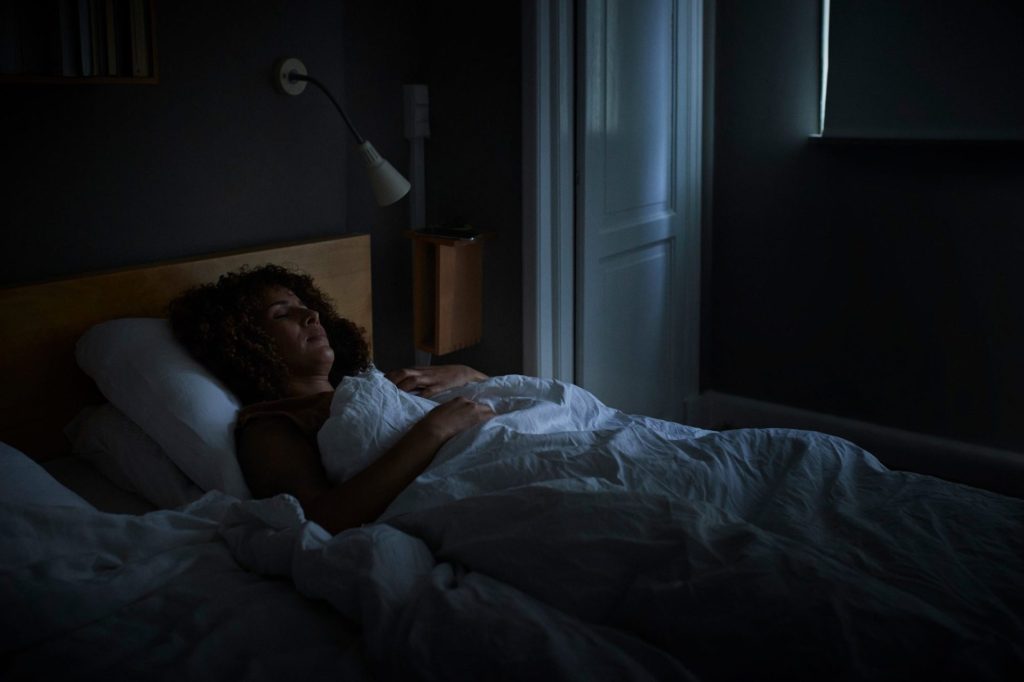Watan–Videos showcasing individuals’ efforts to achieve optimal sleep have gained significant traction online. Under the trending topic “Sleepmaxxing,” people are sharing their experiences and techniques, making it one of the most popular and widely discussed subjects on social media.
Emily Lavinia’s Take on Sleepmaxxing
Emily Lavinia shared her experience with this trend and opinions from health experts.
The Obsession with Perfect Sleep
Achieving “perfect sleep” has become an obsession for some social media users. These individuals use an exaggerated array of strategies, tools, and techniques to improve the quality and duration of their sleep.
Dr. Harry Garrett, a UK-based sleep researcher, describes this trend as bordering on obsession. He explains:
“The trend aims to reveal practices that can improve sleep quality—focusing on sleep duration and quality to enhance overall mental and physical health. It involves using tools, technologies, smart devices, and supplements to encourage deeper, longer sleep. Many people combine several techniques to maximize their chances of good sleep, hoping to achieve specific physical and mental benefits.”
Sleep Tracking and Supplements
Smart devices track deep sleep, light sleep, and REM (rapid eye movement) sleep—a stage where muscles, except those around the eyes, are inactive.
The trend’s most interactive practices include:
- Consuming supplements and sleep-inducing drinks to ensure optimal rest.
- Using comfortable bedding and sleepwear.
- Employing tools like earplugs, air purifiers, and wearable devices that measure heart activity.
While this obsession has led to increased sleep duration and fewer difficulties falling asleep, it has also caused negative effects, such as:
- Anxiety about sleep quality and duration.
- Panic when routines are disrupted.
- Over-reliance on tracking data from smart devices immediately upon waking.

Do You Really Need All This to Sleep?
The critical question is whether followers of this trend are overdoing it.
Sleep is ultimately a natural process. Despite the impact of stress, anxiety, hormones, and other factors, exhaustion will eventually lead to sleep.
Stephanie Romiszewski, a sleep physiologist, emphasizes,
“Sleep is a process that doesn’t require intervention. It’s better to have a good day, be social, and focus on what you can control to improve your sleep. Those who restrict themselves for the sake of good sleep—by avoiding social events, skipping workouts, or over-resting—might end up with worse sleep quality.”
Some experts warn that tracking sleep excessively could lead to unhealthy obsessions. Dr. Karleera Weiss from the University of Buffalo remarks,
“Marketing sleep as a product is concerning. We must avoid shifting focus from healthy habits to buying more and more products for perfect sleep.”
The Dark Side of the Sleepmaxxing Trend
The average age of TikTok users is 24, and most videos promoting this trend come from individuals in their early 20s. While they showcase various tools to address sleep issues, it’s impossible to assess these tools’ actual benefits since social media rarely tells the full story.
Dr. Garrett explains,
“Most health-related information on social media isn’t scientifically tested and often comes from unqualified individuals. This can lead people to waste time and money on ineffective practices, causing frustration when their sleep doesn’t improve.”
Comparing one’s sleep routine to others’ can also heighten anxiety and disrupt sleep. Additionally, the financial cost of sleep aids, while helpful, is largely unnecessary.
Dr. Garrett also warns against influencers promoting medical treatments, like melatonin—a hormone produced naturally in the brain but often used as an over-the-counter supplement in many countries without medical supervision.
The Many Variables of Sleep
Studies show that sleep needs vary across different life stages. For instance, individuals going through puberty or menopause often require more sleep due to hormonal fluctuations, which can disrupt sleep quality.
Romiszewski notes,
“Sleep naturally changes with seasons, weeks, and months. It’s impossible to control all variables, but focusing on impactful behaviors and letting go of the need for perfect conditions every night is key.”
The Struggle for Sleep Perfection
While achieving perfection in any area of life is challenging, improvement is always worthwhile, especially regarding sleep. Sleep deprivation and insomnia negatively impact physical health, memory, focus, and mental well-being.
According to Cleveland Clinic, chronic sleep deprivation increases the risk of:
- High blood pressure and cholesterol levels.
- Type 2 diabetes.
- A weakened immune system.
- Heightened sensitivity to pain.
- Depression and anxiety symptoms.
Practical Tips for Better Sleep
Experts shared practical tips with Healthline for achieving quality sleep:
- Avoid caffeine at least six hours before bedtime.
- Stop looking at screens 45 minutes before sleeping to reduce blue light exposure.
- Exercise regularly but avoid intense workouts close to bedtime.
- Maintain consistent sleep and wake times daily.
- Keep your bedroom cool and dark.
- Get sunlight exposure upon waking.
The Benefits of Good Sleep
Noah Kass, a psychotherapy expert, explains,
“Prioritizing rest benefits your physical and mental health, whether or not you call it perfect sleep.”
The CDC highlights several benefits of adequate sleep:
- Faster recovery from illness.
- Maintaining a healthy weight.
- Reduced stress and improved mood.
- Lower risk of health issues like heart disease and type 2 diabetes.
- Enhanced focus, memory, and productivity.
In conclusion, while improving sleep is a worthy goal, balance and moderation are crucial to avoiding unnecessary stress and expense.
